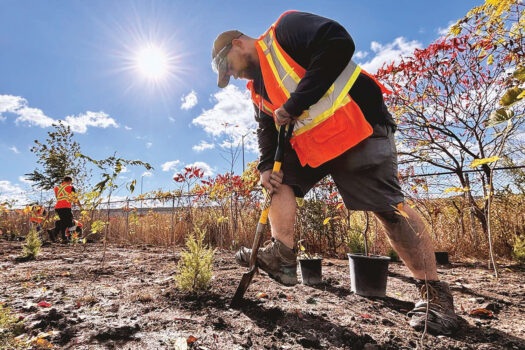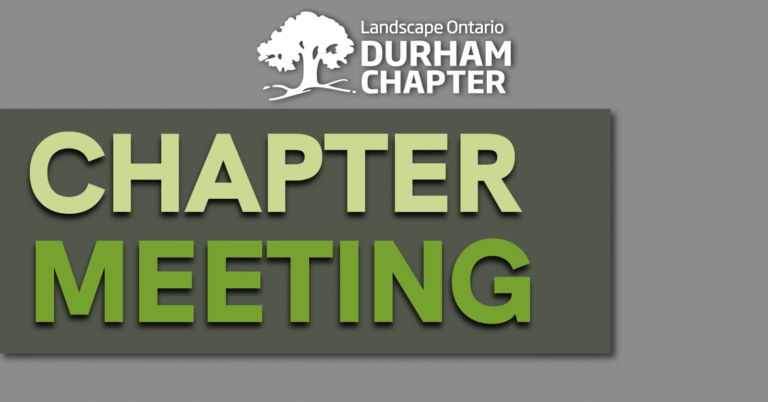By Terry Murphy CLP
 The number of underground strikes are on the rise. Unfortunately, the landscape industry itself is the only one that can do something about it. Yes, we have legislation, penalties and fines, and yes they are all deterrents. But, the only way to reduce these costly hits is to make a commitment that we are going to do something about it.
The number of underground strikes are on the rise. Unfortunately, the landscape industry itself is the only one that can do something about it. Yes, we have legislation, penalties and fines, and yes they are all deterrents. But, the only way to reduce these costly hits is to make a commitment that we are going to do something about it.
We need to learn more about the underground. We need to participate in Ontario Regional Common Ground Alliance (ORCGA) awareness sessions and make sure our employees understand all the underground issues and damage prevention techniques. We as an industry must talk about ways to avoid these hits, be aware of the dangers (even loss of life potential) and learn more about the underground liabilities that exist. It goes without saying that obtaining locates is a given in order to prevent an underground hit, but there is new process that can assist in this regard. It is called Alternative Locate Agreement, or ALA.
The utilities and the authorities (Technical Standards and Safety Association, Electrical Safety Association, Ministry of Labour) created the ALA process to assist contractors that marginally dig into the soil. It exists for the contractor who may only dig less than 12 inches on a project. It is ideal for an irrigation contractor, or a soft landscaper planting annuals, or laying sod, etc. It does not fit an installer of trees, etc.
The process allows an excavating contractor to register with utility in their respective market area. The contractor signs an agreement that confirms they do not dig more than a foot. Once an ALA is signed, which is a legal document and binding agreement between the contractor and the utility, the contractor obtains permission for the locates over the phone. This eliminates the need for waiting days for the actual paint lines to go onto the ground. A contractor requires the locate paperwork, which must be posted at the work site. This can save many days, or even weeks of delay by eliminating the wait time for a locate company. The utilities want contractors to use ALAs as part of the damage prevention strategy.
In the spring of 2010 in the Ottawa area, locates were taking four to five weeks because of an unusual demand, an early spring and a shortage of qualified locate staff. If an irrigation contractor, for example, was using the ALA process, they could have proceeded with only a two to three days wait, which is the time it takes to get the paperwork.
Now that the 2010 season is coming to an end, it is time to start thinking about and planning for next year. Every contractor (particularly in the irrigation field) should obtain an ALA agreement with each utility in his or her area. Once you have it, keep it, as it is good for a lifetime! It is a one-time application process and you may use it year after year. This is one way that may save you a great deal of time and effort, while you are still fulfilling your locate responsibility. And, it will definitely speed up the locate process. Call your local utility now and get the ALA paperwork started for the 2011 season.
Please send your comments, suggestions and ideas to tvmurphy@ca.inter.net.








